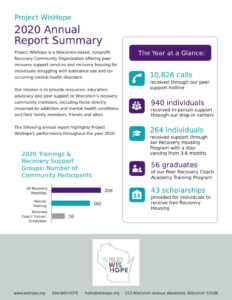Forgiveness takes on a spectrum of meanings that shape personality in unexpected ways. While many preach free and infinite forgiveness, some opt for the “fool me twice” philosophy. With such a wide range of opinions surrounding when and what to forgive, contemplating who deserves a second chance for transgressing boundaries and who doesn’t can be a complex decision.
Anyone close to addiction — either through personal experience or proximity to a loved one — has a plethora of experience with the cycle of transgression forgiveness. Relapse is a part of recovery, but that doesn’t stop those early into sobriety from making promises about their perceived control regarding addiction. Be it optimism or pressure to calm the worries of loved ones, efforts to guarantee recovery to others provides short-term relief. The long game of assuring sobriety overlooks the unpredictable nature of triggers while setting up those hearing the promises for potential — and typically avoidable — disappointment.
Over time, broken promises can stack up. Those dealing with alcohol and/or substance use disorder inevitably shoulder the guilt of these compromised intentions during moments of clarity, but given the context of the illogical disorder, these broken promises need not bear the weight of shame. Changing one’s perception of past shortcomings to tell a story helps correct negative cycles of thinking.
Being on the receiving end of reinvigorated commitments to sobriety offers hope at first. But after several cycles of making and breaking promises, the trust in such efforts is tested. It almost seems as if the tendency to make a promise of remaining sober and the capacity to go back on one’s word both embody different manifestations of use disorder. At a certain point, one reaches a threshold of what they can forgive. This limit differs from person to person, but in order to clearly delineate that limit and empower one’s own feelings of self-worth, boundaries must be set.
FORGIVENESS VS. ENABLING
Without boundaries, the line between forgiveness and enablement becomes awfully blurry. Extending the olive branch of forgiveness allows both parties to feel the temporary catharsis of confirmation. Both parties recognize the transgression and if for only a brief moment, make a collaborative pact to improve on shortcomings. For better or worse, the reconnection of forgiveness enables both individuals to harness a newfound sense of agency in righting the ship. How committed to this reconnection each party remains usually correlates to the resources, honesty, and time invested in prioritizing forgiveness.
Yet, being the transitory humans we are, upholding resolutions made in one moment don’t always carry far into the future. Letting a loved one down feels really crummy. Being let down can feel even worse. Maintaining a relationship in the presence of addiction is a tightrope between boundaries and enabling behavior. Partners might feel unsure of their role during their significant other’s relapses. Without fulfilling the role of “authority figure,” partners straddle concerns of not doing enough and losing their sense of self in absolving their partner’s struggles.
Instead of slipping down a gradual descent into codependency, relationships with one or more members battling addiction benefit from setting boundaries early and checking in with them often. Initiatives such as interventions or verbal agreements kickstart accountability within relationships, yet unless these boundaries are revisited semi-frequently, they are easily eclipsed by more pressing issues. Reminding oneself of relationship agreements can also make it easier to follow through with any sort of actionable response to a transgression, should it come to that. Ultimately, each individual must feel empowered to forgive when boundaries are honored, and likewise to not forgive when they aren’t ready.
NARRATIVE RECONSTRUCTION
Moving on from perceived failures might feel awkward and trying. It is common to define one’s value in life in terms of relationships with others. When these relationships face hardship or end altogether, a crisis of identity is triggered in the form of anxiety and/or depression. Throughout recovery from alcohol and/or substance use disorder, severing ties with codependent relationships sometimes creates traumatic memories.
Narrative reconstruction marks a therapeutic model by which traumatic memories are revisited in the attempt to process them along with non-traumatic memories. The treatment involves describing traumatic memories through writing and vocal recollection in a judgment-free environment. Narrative reconstruction offers a path toward accepting traumatic experiences in order to move forward and learn from the experience.
Even if the ending of a relationship is due to the actions of one party more than another, all involved have a decision to make: how to move on after it ends. While the emotions of frustration, sadness, and anger will play out as individuals accept the end of relationships, perceptions of regret, nostalgia, and shame can be reframed. By accepting the person you are today, it will be easier to forgive who you were yesterday. Without self-reconciliation, there is little hope for growth through recovery.
Forgiveness can’t be guaranteed to all in recovery, nor should it be. Feeling entitled to another’s forgiveness indicates the need for emotional growth. Moreover, codependent relationships thrive with individuals feeling entitled to each other’s feelings. Friends and family members of individuals recovering from alcohol and/or substance use disorder may have experience in forgiving the actions of their coping loved ones, but each person has specific boundaries that once crossed may never be uncrossed. Sharing these boundaries helps all members to respect and grow from their relationships. We must learn to forgive without enabling or acknowledge that forgiveness may not be possible, so recovery can continue. At WisHope, we view recovery as a road fraught with risk. That is why we work to elevate sober lifestyles through a personalized recovery program, impacting peers during treatment, and long after moving on from outpatient care. Don’t wait to get help — call us today at (844) 947-4673.


